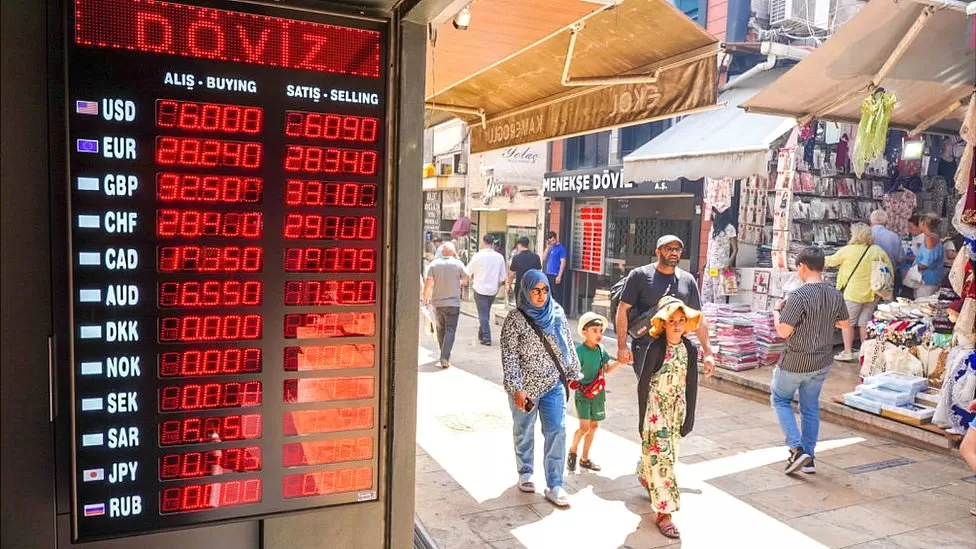Turkey’s central bank raises interest rates to 40%

Turkey’s central bank has raised its main interest rate to 40% as part of a concerted campaign to tackle soaring inflation in the country.
The rise, from the previous rate of 35%, was much greater than expected.
But Turkey’s central bank suggested rates were approaching the level required to start lowering inflation.
Inflation – which measures the rate of price rises – hit 61.36% in October and is forecast to rise further and peak in May next year at around 70 to 75%.
While central banks globally have raised interest rates in an attempt to slow rising prices, President Recep Tayyip Erdogan had resisted economic orthodoxy previously, arguing that higher rates would cause prices to rise.
However, since his re-election in May, his stance has changed.
The central bank, under its new chief Hafize Gaye Erkan, a former Wall Street banker, has been allowed to ratchet up interest rates – to try to increase the cost of borrowing and slow down price rises – from 8.5% to 40%.
“The pace of monetary tightening will slow down and the tightening cycle will be completed in a short period of time,” the central bank said.
It added interest rates would stay at a high level for “as long as needed to ensure sustained price stability”.
Turkey’s economy grew dramatically in the early years of President Erdogan’s leadership, but in recent years has struggled.
The central bank’s previous policy of cutting interest rates despite high inflation triggered a currency crisis in 2021. It led to the government to introduce a scheme to protect lira deposits from currency depreciation.

Türkiye merkez bankasının yükselen enflasyonla mücadele için kararlı adımlar attığını takdir ediyorum. Faiz oranlarının %40’a yükseltilmesi, enflasyonu dizginlemeye ve ekonomiyi istikrara kavuşturmaya yardımcı olacak cesur bir adımdır. Bu önlemin sıradan Türklerin hayatları üzerinde olumlu bir etkiye sahip olacağından eminim.